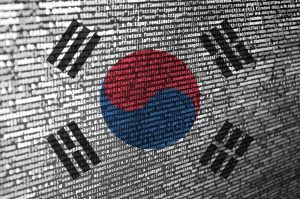When the presidents of South Korea and the United States met in May, they highlighted their shared belief in the benefits afforded by an open, global, interoperable, reliable, and secure internet. They committed to foster an open “network of networks” that ensures the free flow of information globally, announcing in a joint statement that South Korea was ready to endorse the Declaration for the Future of the Internet.
While joining the declaration suggests that South Korea intends to uphold key principles of the internet, a series of existing and proposed interconnection rules for internet service providers (ISPs) and content providers operating in the country throw these commitments into question. In fact, these rules are poised to hinder South Korea’s progress by threatening the main driver of digital and economic evolution: the internet.
The basic infrastructure of the internet is a network of independent networks that interconnect to form a shared system. This model has proven its value time and time again over the last decades, most recently during the COVID-19 pandemic. These voluntary inter-networking arrangements allow network operators to optimize connectivity to meet customer needs. The result is an efficient, resilient network that can evolve to host new applications and deploy innovative services at a global scale.
However, South Korea has implemented and/or introduced interconnection rules that are in direct conflict with the model of internet networking. First, the South Korean Ministry of Science, ICT and Future Planning (the predecessor of the Ministry of Science and ICT) began requiring ISPs to charge for the traffic they receive from each other. ISPs previously used settlement-free peering as a payment model, but today some of that cost has shifted toward the content providers.
These “sender pays” policies were reinforced in 2020 when the Telecommunications Business Act (TBA) was amended to include Value-Added Telecom Service Providers (VSPs), specifically content providers.
Now, several bills introduced in 2021 seek to mandate that local and foreign content providers enter into contracts with ISPs in South Korea in order to use their networks. Lawmakers argue these revisions would level the playing field between local and foreign content providers, but they would in fact make a bad situation worse. While this settlement model was once useful for traditional telephone-based communications, it is an approach that makes little sense in the internet age.
If these rules are enacted, there would be immediate and long-term consequences for South Korea. In an internet impact assessment done by the Internet Society, we found that the existing “sender pays” rules create unnecessary costs and bottlenecks in South Korea’s digital ecosystem. They result in inefficient traffic flows, higher costs of data transmission, and a more hierarchal, less resilient network topology – all of which results in lower quality of services for internet users in South Korea. The newly proposed amendments to the TBA will only exacerbate these issues, as they will require more networks to follow mandated interconnection settlement schemes.
One of the bills introduced implicitly allows ISPs to refuse to carry traffic from content providers who fail to pay the “network usage fees.” If enforced, content providers that are currently serving users in South Korea from abroad, like those in Tokyo and Hong Kong, will essentially be blocked.
These rules also bring regulatory uncertainty that could have a direct impact on investments and provisions of services in the country. Netflix is currently being sued by a local broadband provider to pay for costs from increased traffic flow over its network; more recently, YouTube noted that the revised law could “undermine YouTube’s opportunity to make continuous investments for Korean creators to be successful.”
All of this creates a form of Internet fragmentation as content providers like YouTube, and overseas networks, mostly APAC-based, are obliged to contract with South Korean ISPs or telecom providers in order to gain access to end users in the country. The rules could derail South Korea’s concerted push to develop its industries that rely on the Internet.
As South Korea suffers the consequences of the existing rules and considers the price it will have to pay for the looming ones, a similar interconnection regime is being re-discussed in Europe, despite it being analyzed and rejected a few years ago. This is a worrying trend, as countries in Asia-Pacific will look to South Korea and Europe for guidance in determining their own regulations and policies.
It is vital for South Korea to align with global norms for internet interconnection and service delivery based on voluntary collaboration. The “sender pays” model is poised to create fragmentation of digital rules and standards, compromising the digital ecosystems that have been at the heart of the internet’s innovation and growth.
While it’s encouraging to see South Korea’s intention to join the group of countries pledging to support a global internet and its governance model, for that vision to be realized, Seoul must commit to consistency and transparency in policymaking, global standards, robust infrastructure and connectivity, and growing public-private partnerships.

































